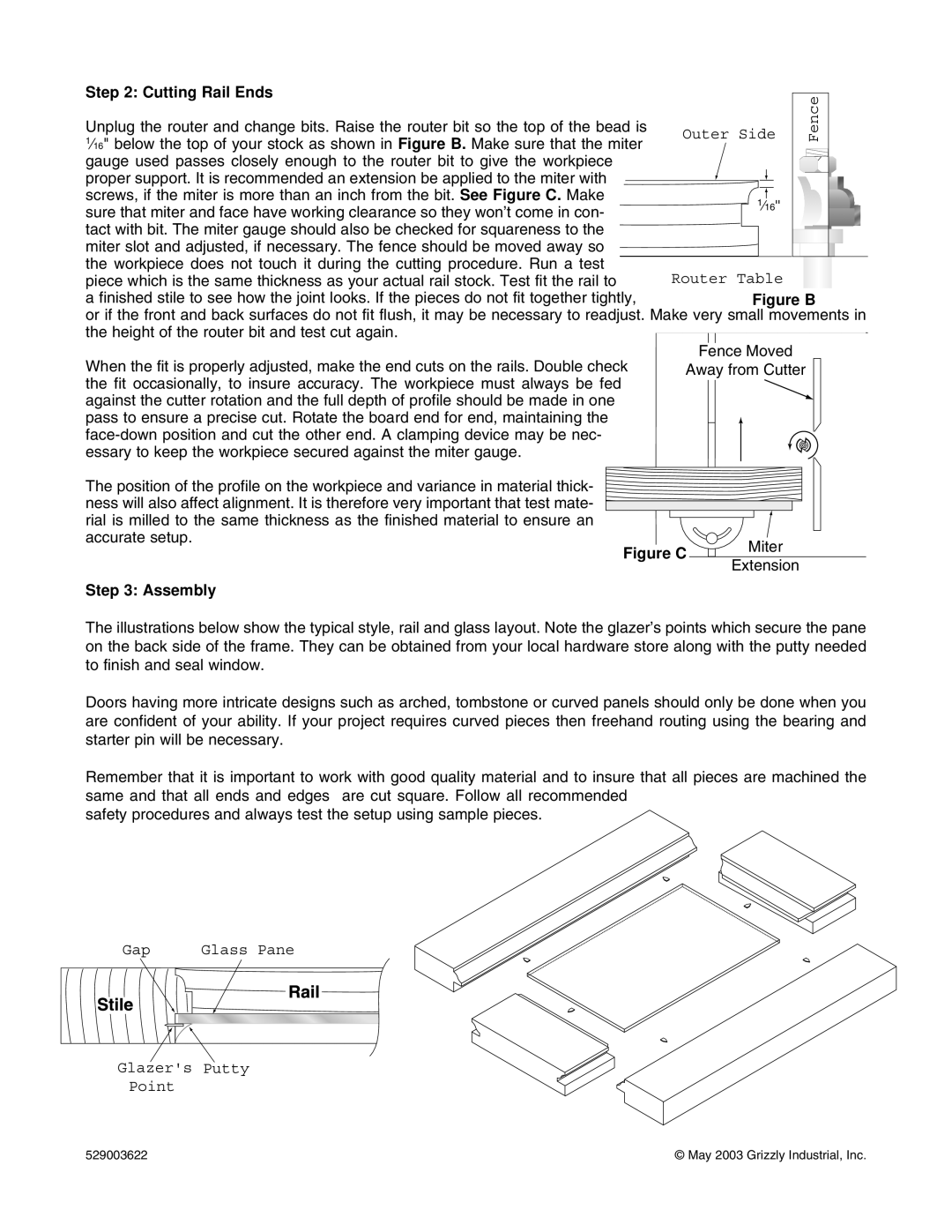1553, C1552, 1551, 1554, C1550 specifications
The Grizzly C1552, C1554, C1555, C1553, and C1550 are part of a versatile range of crushing and screening machines designed to meet the demands of various industries, including mining, construction, and recycling. Each model is engineered with specific features that enhance performance, reliability, and efficiency, making them suitable for a wide array of applications.The Grizzly C1552 is recognized for its robust design and high throughput capability. It is equipped with a powerful engine that provides exceptional crushing force, ensuring effective material processing. Its advanced hydraulic system allows for rapid adjustments, optimizing the crushing process for different sizes and types of material. The C1552 also features a user-friendly control system, enabling operators to monitor performance metrics in real time.
The C1554 model offers enhanced mobility, equipped with tracks for easy relocation across job sites. This model combines flexibility with performance, allowing it to adapt to various terrains. Its high-capacity feeding system ensures efficient material intake, while the advanced screening technology provides accurate separation of fines from larger materials. The C1554 is particularly favored in recycling applications due to its capacity to handle mixed material streams.
The Grizzly C1555 takes efficiency to the next level by incorporating energy-saving technologies. It features a hybrid engine that can operate on electric or diesel power, reducing overall fuel costs and environmental impact. Additionally, the C1555 is designed for easy maintenance, with access points strategically placed for quick servicing, thus minimizing downtime and boosting productivity.
The C1553, known for its durable construction, is designed to handle the most challenging crushing environments. Its heavy-duty chassis and reinforced components ensure longevity and reliability, even under high-stress conditions. This model excels in producing high-quality aggregate materials, making it ideal for construction projects where material specifications are stringent.
Lastly, the C1550 focuses on mobility without compromising productivity. Its compact design allows for efficient transportation, while still being capable of processing large volumes of material. The C1550 includes a range of screening options, giving operators the flexibility to achieve desired material sizes.
In summary, the Grizzly C1552, C1554, C1555, C1553, and C1550 represent a comprehensive lineup of machines tailored to fulfill various industry needs. From advanced engineering and hybrid technology to robust construction and easy maintenance, these models reflect the commitment to quality and innovation that Grizzly is known for.

